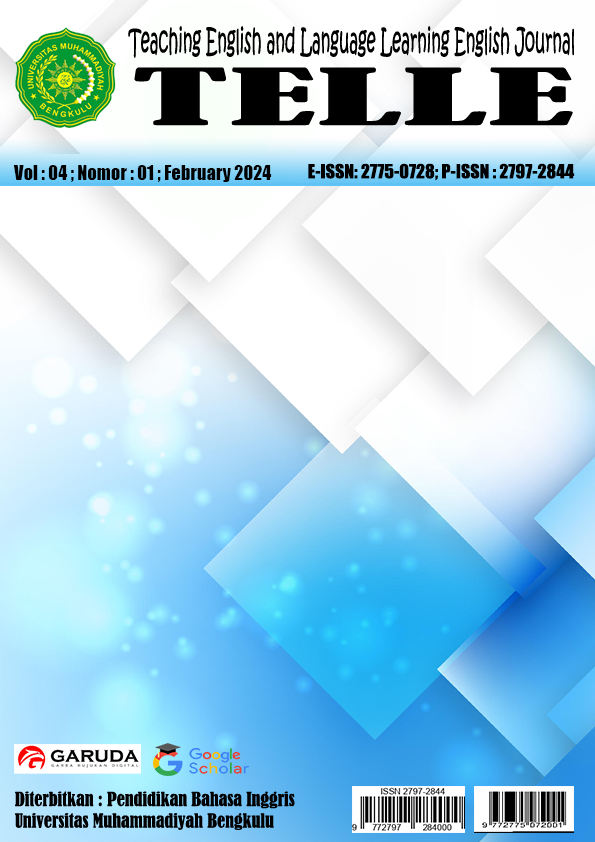THE EFFECT OF STORY TELLING ON STUDENTS VOCABULARY MASTARY AT SDN 33 SELUMA
DOI:
https://doi.org/10.36085/telle.v4i1.6328Abstract
The objective of this research is to find out the effect of Storytelling to the vocabulary of 33 students at SDN 33 Seluma. The design of this research is a quasi-experimental research design. The subject of this research will be the fourth year students of SDN 33 Seluma. The number of the subjects are 33 students. The class will be divided into two groups. The first group is control group with 16 students, and the second is experiment group with 17 students. The instruments will be used in this research are English stories and vocabulary tests form. The data of this research was collected in the steps: 1) pre-test, 2) treatments, 3) post-test. In analyzing the data, the researcher used the assistance of SPSS 16 Application for making the analysis easier and faster. The results showed that a paired-sample t-test employed a discrepancy of -6.7 between the scores obtained in the pre-test and post-test phases. The resulting P-value (Sig) of 0.035 is below the established significance level (α) of 0.05. This statistic analysis signifies a meaningful difference in the average scores, offering proof that the utilization of the story-telling method noticeably improved the students' grasp of vocabulary at SDN 33 Seluma. Consequently, the initial assumption (H0) is rejected, and the alternate assumption (H1) is accepted, confirming that the application of the story-telling method indeed exerted a substantial positive effect on the students' vocabulary mastery.
Key words: Story Telling, Students’ Vocabulary





